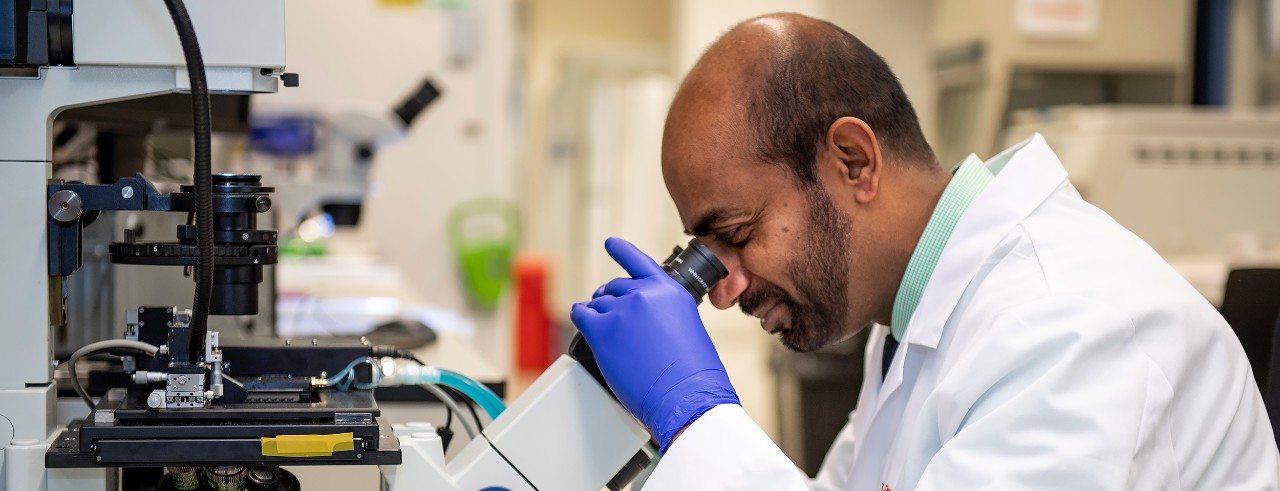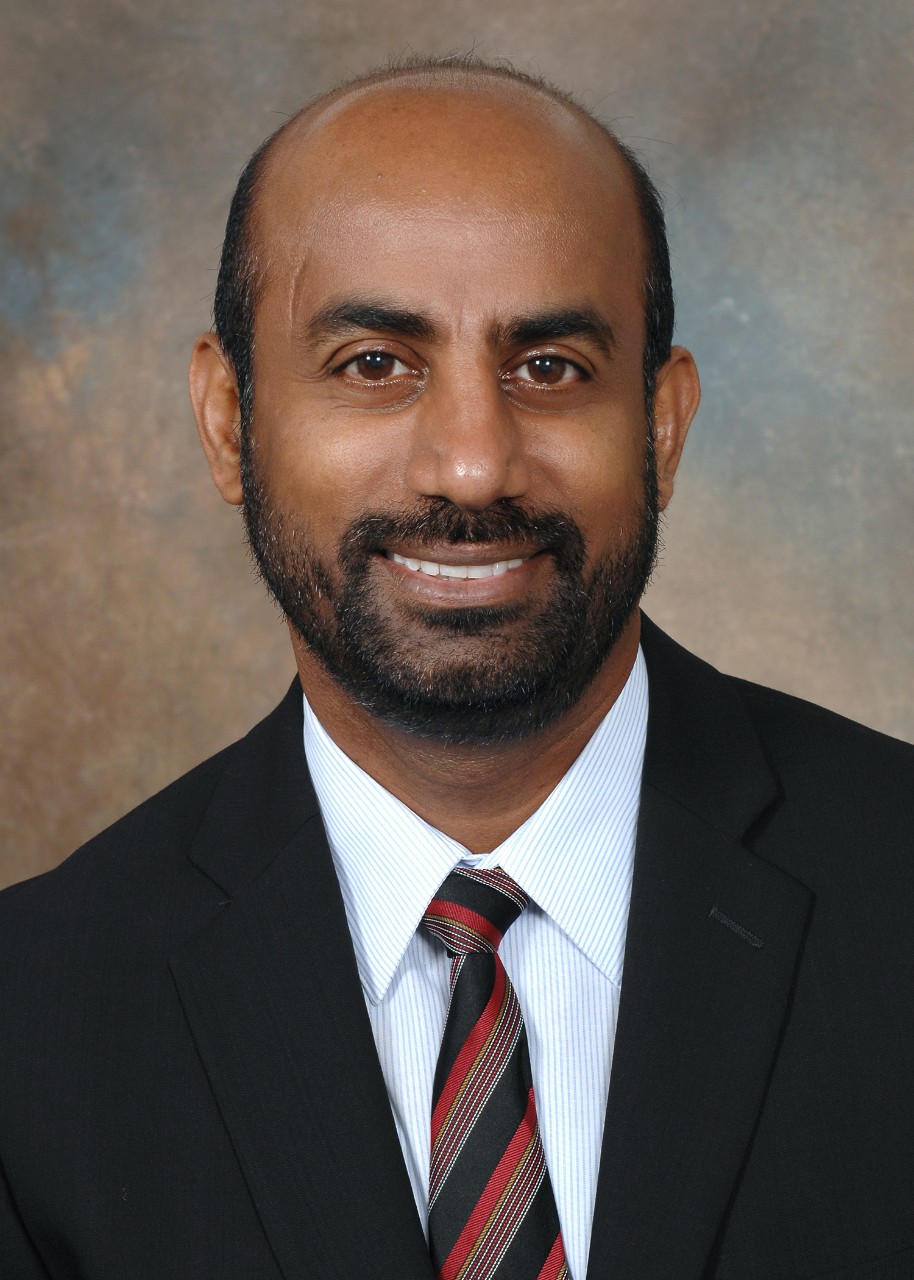
UC scientist studies role of protein in skeletal muscle disorders
College of Medicine lab tackles a rare muscle disorder leading to deformities in children
A University of Cincinnati researcher has received a five-year $2.3 million grant to study the role a protein in muscles plays in the development of a rare disease. The grant is from the National Institute of Arthritis and Musculoskeletal and Skin Diseases.
The condition, called distal arthrogryposis, is a skeletal muscle disorder characterized by the presence of joint contractures, or a tightening or shortening of the joint causing a deformity, at various parts of the body, particularly in the furthest extremities, explains Sakthivel Sadayappan, PhD, professor in the UC Division of Cardiovascular Health and Disease. The condition affects one in 3,000 live births and leads to increased connective tissue formation around the joints in a way that immobilizes muscle movement leading to deformities in children.

Sakthivel Sadayappan, PhD
“I branched out of my traditional cardiac research project to include skeletal muscle,” says Sadayappan, who oversees a team of postdoctoral fellows, graduate and medical students in his College of Medicine laboratory. “The structure and functions of [the protein] have similarities but are not identical in heart and skeletal muscles.”
Currently, treatments of distal arthrogryposis diseases can range from simple procedures such an Achilles tendon release to more moderate methods such as elbow and knee surgeries. Other treatments are more involved including surgeries to lengthen limbs or correct spines.
Sadayappan says myosin binding protein-C (MyBP-C) is essential for muscle formation, function and regulation and exists in both heart and skeletal muscle. In skeletal muscle two paralogs (genes) of the myosin binding protein-C, slow skeletal (sMyBP-C) and fast skeletal (fMyBP-C) are present and they are distinct from what is seen in heart muscle. Much of Sadayappan’s previous research has looked at myosin binding protein-C in heart muscles and its role in the development of hypertrophic cardiomyopathy in heart patients.
The goal of our current research is to define the physiologic mechanisms underlining how mutations ... in animal models leads to muscle dysfunction.
Sakthivel Sadayappan, PhD
“The goal of our current research is to define the physiologic mechanisms underlining how mutations in slow skeletal myosin binding protein-C seen in animal models leads to muscle dysfunction and contractures,” says Sadayappan. “We hypothesize that the slow skeletal protein is a key regulator of striated skeletal muscle formation and function.”
Experiments will look at defining the role of myosin binding protein-C in regulating skeletal muscle function in four unique animal models. “Understanding the molecular mechanisms that underlie a reduced contractility in muscle disease should help us identify novel therapeutic targets to improve muscle function in individuals afflicted with distal arthrogryposis,” says Sadayappan.
Featured image of Sakthivel Sadayappan, PhD, in his laboratory at the UC College of Medicine. Photo by Colleen Kelley/UC Creative + Brand.
Impact Lives Here
The University of Cincinnati is leading public urban universities into a new era of innovation and impact. Our faculty, staff and students are saving lives, changing outcomes and bending the future in our city's direction. Next Lives Here.
Stay up on all UC's COVID-19 stories, read more #UCtheGood content, or take a UC virtual visit and begin picturing yourself at an institution that inspires incredible stories.
Sadayappan’s work is supported by the National Institute of Arthritis and Musculoskeletal and Skin Diseases grant 1R01AR078001-01.
Related Stories
UC studies supplement, therapy alternatives to treat depression
March 2, 2026
Media outlets including Cleveland.com and Cleveland's WKYC News highlighted a new University of Cincinnati clinical trial funded by an approximately $3.5 million grant from the National Institutes of Health’s National Center for Complementary and Integrative Health to test two new nonpharmacological treatments for teens and young adults with depression.
'Paradigm-shifting' study confirms effectiveness of long-acting HIV treatment
February 26, 2026
The results of a clinical trial involving the University of Cincinnati, recently published in The New England Journal of Medicine, show people failing HIV treatments with oral medications were able to be treated successfully using injections.
How do horses whinny?
February 26, 2026
A horse makes the low-pitched part of its whinny by vibrating its vocal cords — similar to how humans speak and sing — and the high-pitched part by whistling with its voice box, according to a new paper published in the journal Current Biology and featured in Smithsonian magazine.
